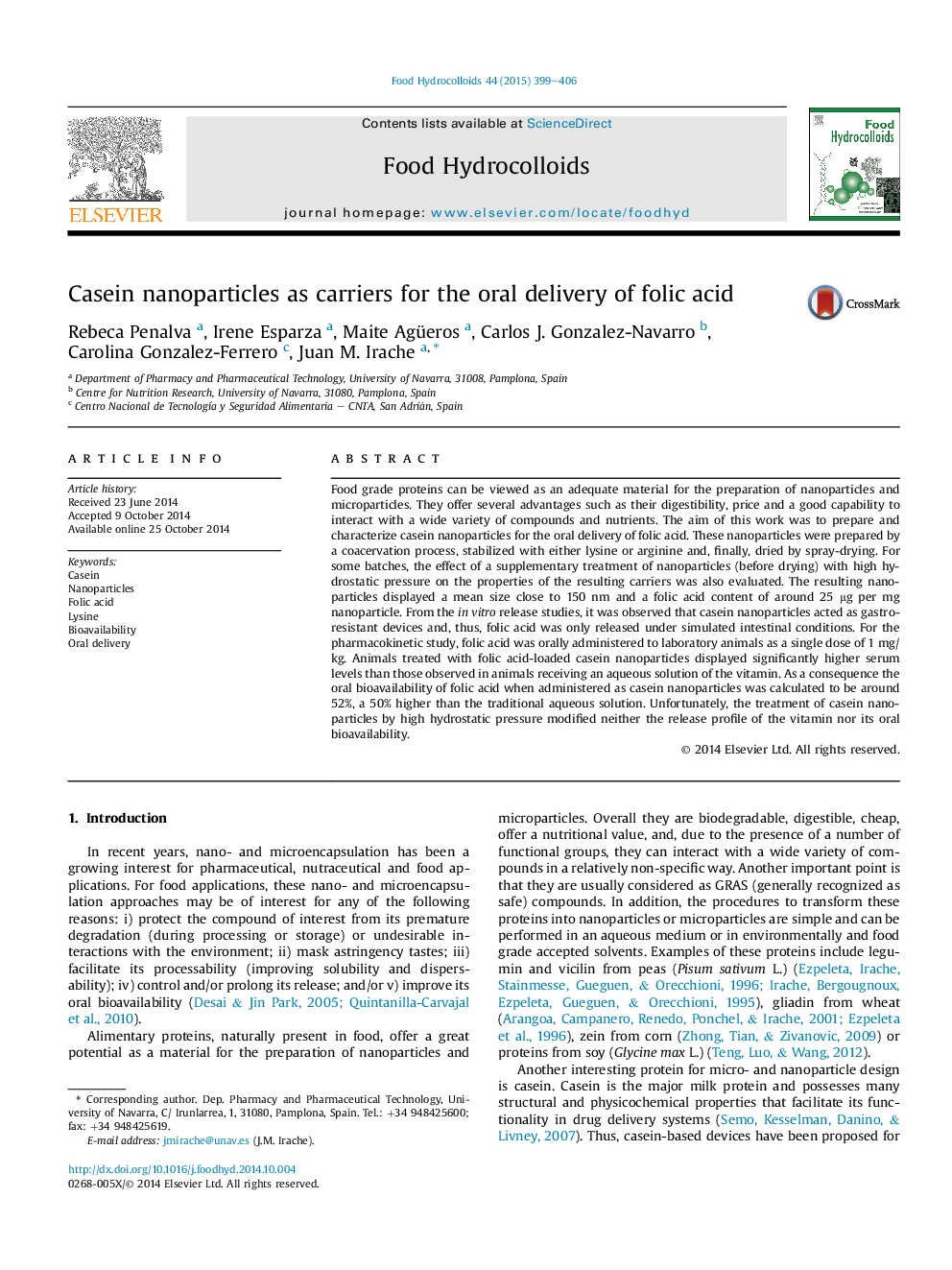| کد مقاله | کد نشریه | سال انتشار | مقاله انگلیسی | نسخه تمام متن |
|---|---|---|---|---|
| 603838 | 1454432 | 2015 | 8 صفحه PDF | دانلود رایگان |
• Casein nanoparticles can be prepared in an aqueous medium and stabilized with lysine.
• Folic acid was efficiently loaded in casein nanoparticles stabilized with lysine.
• Folic acid was only released from casein nanoparticles in simulated intestinal fluid.
• Folic acid encapsulation in casein nanoparticles promoted its oral bioavailability.
• Treatment of nanoparticles with high pressure did not improve their properties.
Food grade proteins can be viewed as an adequate material for the preparation of nanoparticles and microparticles. They offer several advantages such as their digestibility, price and a good capability to interact with a wide variety of compounds and nutrients. The aim of this work was to prepare and characterize casein nanoparticles for the oral delivery of folic acid. These nanoparticles were prepared by a coacervation process, stabilized with either lysine or arginine and, finally, dried by spray-drying. For some batches, the effect of a supplementary treatment of nanoparticles (before drying) with high hydrostatic pressure on the properties of the resulting carriers was also evaluated. The resulting nanoparticles displayed a mean size close to 150 nm and a folic acid content of around 25 μg per mg nanoparticle. From the in vitro release studies, it was observed that casein nanoparticles acted as gastro-resistant devices and, thus, folic acid was only released under simulated intestinal conditions. For the pharmacokinetic study, folic acid was orally administered to laboratory animals as a single dose of 1 mg/kg. Animals treated with folic acid-loaded casein nanoparticles displayed significantly higher serum levels than those observed in animals receiving an aqueous solution of the vitamin. As a consequence the oral bioavailability of folic acid when administered as casein nanoparticles was calculated to be around 52%, a 50% higher than the traditional aqueous solution. Unfortunately, the treatment of casein nanoparticles by high hydrostatic pressure modified neither the release profile of the vitamin nor its oral bioavailability.
Figure optionsDownload as PowerPoint slide
Journal: Food Hydrocolloids - Volume 44, February 2015, Pages 399–406
